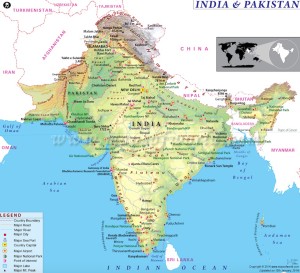An interview with Mary Scully, independent socialist candidate for President

Mary Scully
1. Tell us about yourself and your personal history as an activist and socialist.
I come from a conservative, Catholic working class family. My father was an electrician. I am the 4th of 19 children and spent most of my youth caring for siblings since my mother was always pregnant. To this day, children remain my primary inspiration in politics.
I had no options in 1962 for going to college. My grades had suffered from doing childcare, and as a working class girl, college was unaffordable and wasn’t considered my destiny. I had always been interested in children with learning disabilities and worked throughout high school summers at a boarding school run by nuns for learning disabled girls. High school graduation looked like a 600-foot cliff so I applied to the order and joined in 1962.
I remained in the novitiate for just over 2-1/2 years but left for several reasons: they removed me from childcare because I refused to use physical violence on the girls and made me an apprentice cook instead; the Vietnam War had started and one of my older brothers was sent but the convent would not allow me to read about the war; they would not allow me to go to college because they said I lacked sufficient intelligence; and lastly, I was deeply offended by the unequal relationships between men and women in the church.
I worked after the convent as a bank teller and then applied to the University of Minnesota since student aid was now available to working class students. I began in 1966 and my first mission on the campus was to head for the antiwar movement. I also became involved in Palestinian solidarity in 1967.
I had become a feminist in the convent and when the women’s movement began in NYC, I took a suitcase on a bus to a Cleveland antiwar conference in 1970 and hitchhiked on a bus from the conference to NYC. I became involved in building the August 26th 1970 Women’s March for Equality and am a part of its history.
I joined the Young Socialist Alliance in 1970 and SWP in 1971. My tenure was always troubled because I found it profoundly elitist and undemocratic in its internal functioning. But I am forever grateful for the theoretical education I received—from the literature I was introduced to, especially James P. Cannon and Trotsky; through the political debates and disputes; and from activism in several movements.
I might also say there is a negative kind of education one receives from rebelling against lack of democracy in an organization. I had sharp disputes with the SWP leadership for many years and resigned after eleven years because I found the leadership dishonesty, arrogance, and lack of democracy intolerable and recognized it had no chance in hell of leading social transformation anywhere. The experience has made me hyper-sensitive to lack of democracy within organizations.
2. Why are you running in 2016?
I knew it would be an uphill battle but there was no one running who represented the political perspectives of socialists—the uncompromising opposition to wars; absolute commitment to the struggle of the Black community against discrimination and the war on Black youth; ardent support for refugees and immigrant rights; and commitment to women’s rights, LGBT rights, and other social struggles.
I wanted there to be even a peep of opposition and clarity about the issues.
3. Why aren’t you instead supporting/campaigning for Bernie Sanders?
Most broadly, I disdain his candidacy because he is running as a Democrat. The DP’s chief function is to manage the more liberal voters, to co-opt social movements, to control political opposition from the left. It tries to destroy independent social movements and harness them to an electoral perspective. In that regard, it’s been very successful—particularly with civil rights, feminist, and LGBT activists.
In particular, I am appalled at Sanders’ support for apartheid Israel; his opposition to immigrant rights; his support for US wars, including drone bombing. I parted ways with the DP in 1968 over the question of the Vietnam War and I have never found a reason to reconsider that.
Sanders’ populist rhetoric doesn’t cut it for me—especially because he is nothing more really than a left shill in the Democratic Party—a role that many have played over the years to rope in and re-commit disaffected liberals to the DP.
4. What do you think of the Bernie Sanders campaign?
I think it’s useful for educating people about the character of the DP. When he loses the nomination to Clinton, he will—as he promised—try to commit his supporters to her. The old left shill maneuver.
But of course the sole purpose of the left shill is to drain off activism. Every election means a dramatic decline in political protest. That’s observable going back decades. It’s hard to pull off even modest-sized antiwar actions.
It’s impressive that thousands respond to his populism but the political level is uncritical and amorphous. I hate amorphous in politics. I prefer commitment and clarity.
5. How will it affect independent political action going forward?
It is intended and it is effective in undermining independent political action—like antiwar protests. But Palestinian solidarity actions may take less of a hit because he is so reactionary on apartheid Israel.
6. Why has the American Left and socialists in particular historically supported whatever progressive running for potus that the Dems have put forward since ’68?
There are different kinds of socialists and they still fall within the general parameters of social democracy and revolutionary—especially around elections. But the socialist movement today is also profoundly affected by anarchist trends and by sectarianism.
You can’t teach social democrats, who are for the most part elitists, to break with conformity to the power elite. They haven’t got rebellion in them. At heart, they remain “sewer socialists” with an attitude problem. Harsh judgement, but true.
The anti-authoritarianism of anarchist trends would be positive politically if they thoroughly studied socialist theory. But those I know reject the possibility of learning from the past and extemporize their way through politics. Indignation and rebellion only take you so far. You have to school yourself in socialist theoretics or you just end up a grumpy cynic disappointed in the human race.
7. Why has the American Left repeatedly allowed the Democratic Party to draw in, take over, and then suppress every movement of the last 40 years or so?
I wouldn’t say the US left has allowed the DP to do that. I know in the women’s movement we fought ferocious battles over the DP forces trying to corral it into an electoral perspective. We were outnumbered then and still are because of massive illusions about the DP—illusions which the Sanders campaign exists to foster.
I should say that such illusions in the DP exist less in the general population than among activists. For decades, the majority of eligible voters don’t bother to register; those who register don’t bother to vote.
8. What do you expect to accomplish from running in 2016?
I had modest perspectives, given the state of the socialist movement, but I was hoping to get endorsements from some socialists, either as individuals or as groups, and that we would be able to speak around the country to antiwar, women’s rights, LGBT, Black, Chicano, immigration rights, Palestinian solidarity groups. I underestimated the small-mindedness of many socialists who will eschew my campaign and most likely vote and even campaign for the Green Party and Jill Stein.
My primary intention is to explain socialist solutions to political and social problems and to salvage the ideas of socialism from Stalinist misrepresentations that associate it with autocracy and conformity.
9. What kind of responses are you getting since you’ve begun your campaign?
We’re getting lots of international support because of my writings and activism around war, Palestine, and other issues. But I’ve been unable to persuade the majority of socialists in the US to even endorse my campaign on Facebook—let alone set up a meeting for us. Sometimes I find that discouraging but I am committed to doing what I can to promote socialist solutions, whether or not I garner broad support.
10. Do you have any endorsements? If so, from whom?
I’m still trying to get them but am instead getting the bums rush from socialist groups.
11. Are you actively building an organization or have you plugged into existing organizations?
I’m not trying to build an organization out of this campaign but of course, that is my long-term perspective.
12. How has the fight for ballot access been going?
The US electoral system is completely rigged. Every state has its own requirements for ballot status but It takes tens of thousands of signatures from voters and massive amounts of money to get ballot status. In some states, you even have to pay for write-in status. So my campaign is primarily an educational one and has no hope of ballot status.
13. How has fundraising been going?
I have unresolved differences with my running mate about fundraising. But many have offered money.
14. What do you think is the current state of independent politics, working class politics, and American politics in general?
Wow, isn’t this the question of questions! I think the Occupy movement showed the depth of discontent but populism only takes you so far in mobilizing the discontent. You have to formulate a program for action & anarchism doesn’t take well to such proposals. It has a more spontaneous perspective. To me a program means laying out the problems and suggesting solutions. Such a program would necessarily include war and militarism, immigration and refugee rights, the war on Black youth and attacks on civil liberties in the Black community, women’s rights, LGBT rights, sweatshop economics, the increase in minimum wage, union democracy—the whole panoply of social issues facing working people.
The primary task is to rebuild the antiwar movement because for socialists, internationalism is the very matrix of our program. It’s where we begin and I might add, where social democracy and revolutionary socialism diverge.
There is widespread opposition to US wars and the left that wants to be politically relevant and significant—or even to survive—has to prioritize building the antiwar movement, including with liberals, anarchists, church groups, etc. Opposing war is so important that no impediments can be allowed to building opposition.
15. What would take to build a mass left movement that is independent of Democratic Party?
Democratic decision making in any movement is the heart of building an independent movement. But many left groups try to control the process, making events appear democratic but not allowing people to do more than spout off opinions. Things become controlled in a back room. It’s the nature of sectarianism to over-control like that. Many also have events where left celebrities, usually academics, come and talk at activists. But there’s no real two-way process.
Activists have to learn to think for themselves, to stand on their own two feet politically and not wait for left gurus to tell them what to think. That requires taking theoretical education very seriously. And part of theoretical education is activism because one learns unbelievable amounts of political lessons from involvement in political activity—stuff you cannot learn anywhere else.
16. How do we build a mass movement in this USA that’s sustainable?
Mass movements are fickle things, subject to all sorts of pressures—especially electoral pressures. But the primary, essential aspect of movement-building is democratic decision making. And not allowing movements to be manipulated or controlled behind the scenes. You can only distinguish that if you are active in the movements.
17. How do we build a mass or broad left party in this country? An American Podemos?
I don’t have such a party as my model. SYRIZA reflects my concerns because whoever grabs the leadership posts determines the actual politics. I am more a Leninist in perspective but not the parodies that the left produces because they leave out democracy and become cults. I refer to them as fiefdoms run by a guy with a trust fund who can boss people around. Do you think that might be why I’m having trouble getting endorsements?
18. What lessons can we learn from Podemos is Spain and Syriza in Greece, good, bad, or indifferent?
The leadership of any organization must be controlled by the membership and cannot chart an independent course of action. Whether the membership decisions are right or wrong can be corrected in action if there is democracy.
19. Where do you see this country headed in the next 4, 8, and 12 years?
If a democratic socialist movement is not revitalized which can help rebuild democratic social movements, I don’t see things going well.
20. What is socialism to you?
Socialism is to me today at 71 what it was to me as a young working class activist: equality, democracy, justice—and taking no discount on any of that. I grew up looked down upon and I saw, and see socialism as putting a decisive end to that kind of barbarism toward anyone. I am real hard-assed when it comes to equality, especially since I face so much elitism, including of the misogynist kind, in the socialist movement. Capitalism is to me making others feel small writ large. Socialism is to me creating a world where every human being is respected and honored because they are human.
21. What do you think the revolution would like in America?
Well I have witnessed a revolution—the Portuguese revolution in 1974. It was breathtaking, massive, democratic. And I suspect the American revolution will be even more so because the behemoth of militarism and colonialism will be laid to rest.
22. Any advice for young socialists, independents, and activists?
Yes I do have advice to young socialists and activists. It’s a funny thing you ask this because in the 1990s I worked with two young socialists at Harvard and they remembered not long ago that my advice to them then was to do their homework, to not talk through one’s hat or be glib, to not extemporize or speculate or rely on impressions—but to assiduously study history, theory, the news. That still is my most ardent advice to young socialists.
23. Anything else you would like to add?
My most important advice is to be ruthlessly democratic and honest in one’s political functioning. I’ve seen many try to be clever and maneuver others but it’s a symptom of cynicism and elitism that leads straight to political degeneration. Nothing is more important for young socialists than to be uncompromising in honesty and egalitarian relationships with others. You’ll take some blows for it; you’ll even be maligned. But you won’t decay into a cynic. Or become a damn Democrat.
https://www.facebook.com/MaryScullyReports



